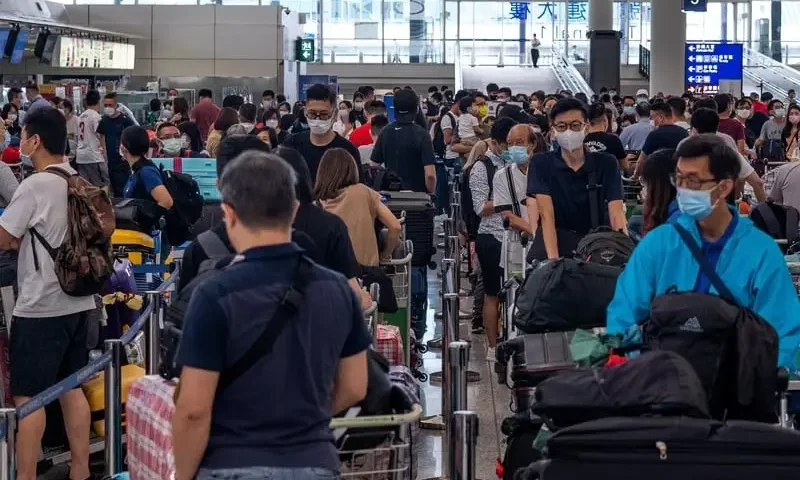UK immigration is pretty complicated, and not less complicated with all the frequent updates and changes in the legislation. This guide attempts to detail the UK immigration rules as of 2025. The information here will be used to equip you with the knowledge to understand your rights and obligations under UK law.
Categories of Immigration:
The UK immigration system can be primarily categorized into the following:
1. Skilled Worker Visa: This is for those who have a confirmed job offer in the UK. The sponsor employer must be registered with the Home Office and provide a Certificate of Sponsorship. The applicants should meet particular salary thresholds, requirements in terms of the use of the English language, and qualification related to the job.
2. Student Visa (Tier 4): Students from outside the UK who intend to move to the UK to study come under this category. To qualify, they should have a license from a college or institution of learning and prove that they can afford to live and study without working, given the limitations during the period of study.
3. Family Visas: There are those who enter to join already-settled family members in the UK. These fall under common subcategories like the spouse or partner visa, parent visa, and child visa. For example, they need to present proof of relationship, fulfill certain financial thresholds, and intend to live with the spouse permanently.
4. Global Talent Visa: This is a visa for highly skilled people with expertise in science, arts, and technology. It calls for endorsement from an approved body; it has more flexibility, and the applicant’s engagement to a specific employer is not required.
5. Asylum and Refugee Status: These are statuses granted to people seeking protection from their country of origin due to fear of persecution. This in itself is a proper process of testing evidence, thus having a thorough interview process in the process of asylum.
Legal Concepts Used In UK Immigration System:
There are various crucial terms and principles a person must understand to be successful in navigating this system:
1.Right to Remain: This is the legal right of a person to stay permanently or temporarily in the UK. For instance, there is Indefinite Leave to Remain (ILR), which has no time bounds.
2.Public Funds Restriction: Many visa types restrict access to any public funds, for example, benefits or housing assistance. Violation of this rule can provoke revocation of a visa.
3.Immigration Cap: Some visas have a cap yearly, meaning an applicant should apply early to fill an opening.
4.Overstay: Staying more than the given period in a visa is illegal. Punishment, prohibition, or even deportation can occur.
Read Also: Can Immigration Judges Ask Too Many Questions?
Compliance and Documentation:
The UK immigration process is very documentation-based. Such applications need supporting evidence. These comprise but are not limited to the following:
•Passports and all travel documents
•Evidence of English language proficiency such as IELTS scores
•Banks’ or company-guaranteed employment contracts as financial proofs
•Skilled worker applications with evidence of Sponsorship
•Educational qualifications, where necessary
Failure to provide accurate and complete documentation may result in delays or rejections. All submitted documents need to be real because lying about something is against the law under UK law.
Frequently Asked Questions about the UK Immigration Rules:
1.What should I do if my visa is declined? There may be some appeal or administrative review, depending on why your application has been declined. Please consult an immigration solicitor for their opinion on what to do next regarding your case.
2.How long will it take to process an application for a visa? The length of time required to process a visa application varies depending on the type of visa. An average processing period is three weeks for skilled worker visas. While other family visas will require up to 12 weeks for their processing, for priority services which can be applied for, such application can be expedited.
3.Can I change visa categories while in the UK? In-country switching is possible for certain visas, such as from a student to a skilled worker visa. However, this would depend on eligibility based on requirements of the new category.
4.What are the implications of overstaying? Overstaying may entail a 10-year re-entry ban, deny one the chance of future visas, or even deportation. One must always seek the extension or leave the UK before your visa runs out.
Future Development Changes in 2025:
The UK government has also revised its immigration policy with further improvements expected in 2025. Some of these developments include:
1.Digitization of processes: Many more applications are going to be totally digital with much lesser paperwork to allow quicker decisions.
2. Borders Security Betterment: More biometric checks, electronic travel authorizations (ETA) for short-term visitors
3. Salary Thresholds: Raise minimum salary requirements for skilled worker visas according to inflationary and labor market conditions.
4. Work after studies: Expand Graduate Route to welcome global talent; Increase time that students can stay and work in the UK after graduating.
Seeking legal advice:
Immigration law is highly complex and subject to very frequent changes. Consulting a qualified immigration lawyer can make all the difference in understanding the ease of being eligible, preparing stronger applications, and countering potential legal challenges. Seek out expert advice as early as possible. That will help you save time, money, and stress.
Being well-informed and in compliance gives you the edge in achieving success in the UK immigration system.
For further advice please get in touch with our team today by calling 020 8538 0182 or +44 7857 809932, or you can email us on [email protected].
Please note these blogs are to enhance your knowledge and are not tailored advice, for specific advice please get in touch with our outstanding team.



